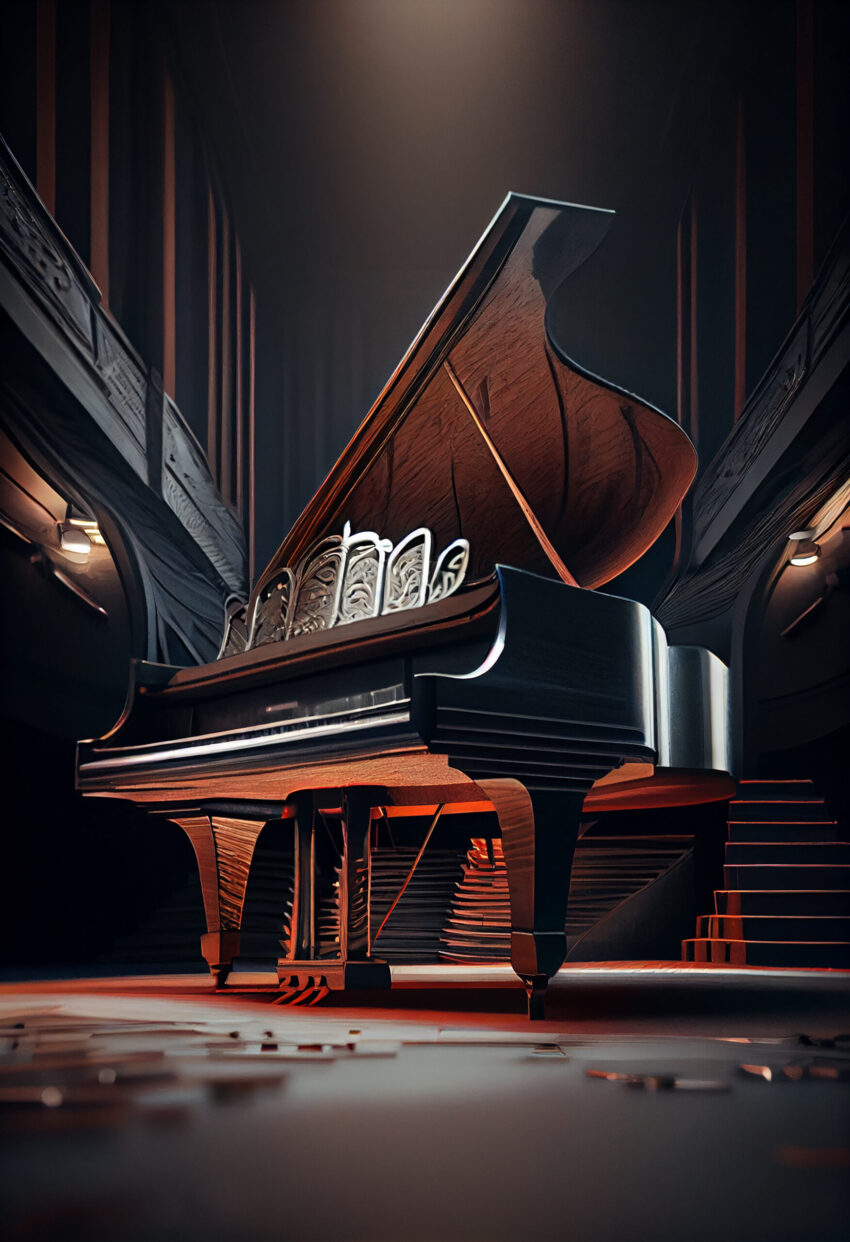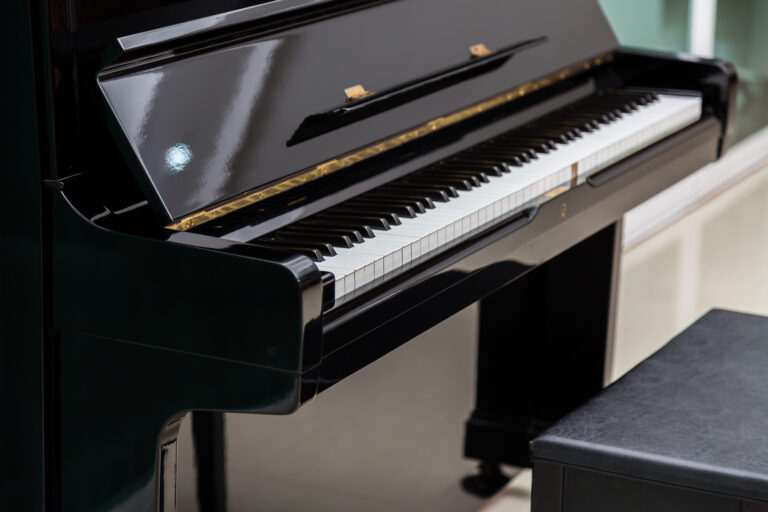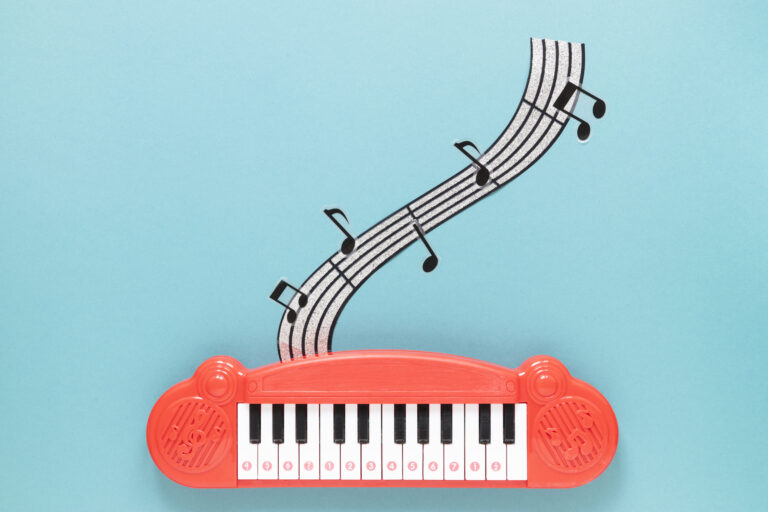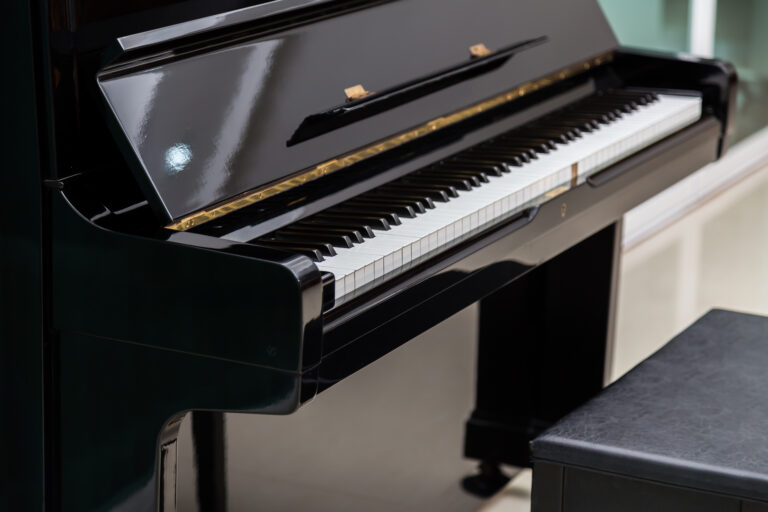Decoding Piano Prices: Your Essential Guide to Investing in a Superior Instrument
Are you interested in purchasing a piano but unsure of how much to budget? The cost of a piano can vary greatly depending on several factors, including the brand, size, and condition of the instrument. However, there are some general guidelines you can follow to get a better idea of how much a good piano may cost.

First, it’s important to note that a good piano is an investment. A well-made piano can last for decades and provide countless hours of enjoyment and musical growth. With that in mind, it’s worth considering spending a bit more to ensure you get a high-quality instrument. That being said, you don’t necessarily need to break the bank to find a good piano that suits your needs.
Understanding Piano Types

When it comes to purchasing a piano, there are three main types to consider: acoustic, digital, and hybrid pianos. Each type has its own unique characteristics and advantages, so it’s important to understand the differences before making a decision.
Acoustic Pianos
Acoustic pianos are the traditional type of piano that most people are familiar with. They produce sound through the vibration of strings that are struck by hammers when you press the keys. Acoustic pianos come in two main styles: grand and upright.
Grand pianos are the larger of the two and are known for their rich, full sound. They range in size from about 5 to 9 feet long and can be quite expensive. Upright pianos, on the other hand, are more compact and affordable. They are a popular choice for home use and come in a variety of sizes.
Digital Pianos
Digital pianos are a newer type of piano that uses electronic technology to produce sound. They are designed to mimic the sound and feel of an acoustic piano but with added features like volume control, headphone jacks, and different instrument sounds. Digital pianos are often more affordable than acoustic pianos and are a popular choice for beginners or those with limited space.
Hybrid Pianos
Hybrid pianos combine the best of both worlds by combining the sound and feel of an acoustic piano with the convenience and versatility of a digital piano. They use electronic technology to amplify the sound of the strings in an acoustic piano, while also offering features like volume control, headphone jacks, and different instrument sounds. Hybrid pianos are a great choice for those who want the sound and feel of an acoustic piano but also want the convenience of a digital piano.
In wrapping up, the perfect piano for you ultimately hinges on your unique needs and tastes. Are you drawn to the classic ambience and tactile experience of an acoustic piano, or are you enticed by the modern convenience and cost-effectiveness of a digital option? Perhaps a hybrid piano, blending the finest attributes of both, is the ideal choice for you. As you weigh your options, remember to factor in your budget, available space, and the style of music you love to play. Your decision will harmonize beautifully with your individual preferences and lifestyle.
Factors Influencing Piano Costs

When looking to purchase a piano, there are several factors that influence the cost of the instrument. Understanding these factors can help you make an informed decision about which piano to choose.
Brand and Model
One of the most significant factors that influence the cost of a piano is the brand and model. Some brands are known for producing high-quality pianos that are more expensive than others. Additionally, certain models within a brand may be more expensive due to their unique features or craftsmanship.
New vs. Used
Another factor that affects piano cost is whether the instrument is new or used. New pianos tend to be more expensive than used ones, but they also come with warranties and are less likely to require repairs in the near future. Used pianos can be a more affordable option, but you should be careful to inspect them thoroughly before making a purchase.
Material and Craftsmanship
The materials used to build a piano can also affect its cost. Pianos made with high-quality wood and other materials tend to be more expensive than those made with cheaper materials. Additionally, the level of craftsmanship that goes into building a piano can affect its cost. Pianos that are handcrafted or have intricate designs may be more expensive than those that are mass-produced.
Size and Type
Finally, the size and type of piano you choose can also affect its cost. Grand pianos tend to be more expensive than upright pianos, and larger pianos are generally more expensive than smaller ones. Additionally, the type of piano you choose, such as a digital piano or an acoustic piano, can also affect its cost.
By considering these factors, you can make an informed decision about which piano to purchase that fits your budget and musical needs.
Price Ranges for Pianos

If you are looking to purchase a piano, one of the most important factors to consider is the price. Pianos can range from budget-friendly options to high-end luxury models. Here are some of the price ranges you can expect to find:
Budget-Friendly Options
If you are on a tight budget, you can find some decent pianos for under $1,000. These pianos are often smaller in size and may not have as many features as more expensive models. However, they can still be a good option for beginners or those who are just starting out.
Mid-Range Pianos
For those who are willing to spend a bit more, mid-range pianos can be found in the $1,000 to $10,000 price range. These pianos are often larger and have more features than budget-friendly options. They can be a good choice for intermediate or advanced players who are looking for a higher-quality instrument.
High-End and Luxury Pianos
If you are looking for the best of the best, high-end and luxury pianos can cost upwards of $100,000 or more. These pianos are often custom-made and can have a wide range of features and finishes. They are typically made from the highest quality materials and are designed to last for generations.
When it comes to purchasing a piano, it is important to keep in mind that the price is not the only factor to consider. You should also think about the size, sound, and feel of the instrument, as well as your own playing ability and goals. With careful consideration, you can find a piano that fits both your budget and your needs.
Additional Costs to Consider

When purchasing a piano, it is important to consider the additional costs that come with owning one. These costs can add up quickly and should be factored into your budget before making a purchase.
Maintenance and Tuning
One of the most important costs to consider is maintenance and tuning. A piano should be tuned at least once a year to ensure that it is playing at the correct pitch. The cost of tuning can vary depending on the location and the technician, but it typically ranges from $100 to $200. In addition to tuning, pianos require regular maintenance to keep them in good condition. This can include replacing worn-out parts, regulating the action, and voicing the hammers. The cost of maintenance can vary widely depending on the age and condition of the piano.
Moving and Delivery
Moving a piano can be a difficult and expensive process. Pianos are heavy and fragile and require special care when being transported. Professional piano movers should be hired to ensure that the piano is moved safely and without damage. The cost of moving a piano can vary depending on the distance, the difficulty of the move, and the level of service required. On average, the cost of moving a piano can range from $200 to $1000.
Accessories and Lessons
In addition to maintenance and moving costs, there are also accessories and lessons to consider. Accessories such as a piano bench, a music stand, and a metronome can be essential for practising and performing. The cost of these accessories can range from a few hundred to a few thousand dollars. Piano lessons are also an additional cost to consider. The cost of lessons can vary depending on the location and the teacher but typically range from $50 to $150 per hour.
In the grand symphony of life, owning a piano represents a meaningful investment. Before taking the plunge, it’s crucial to orchestrate a thorough consideration of all the accompanying costs. By harmonizing these financial elements, you’ll be able to compose a budget that resonates with your aspirations. This thoughtful approach ensures that your piano will continue to serenade your soul for countless years to come, enriching your life with the timeless gift of music.
Where to Buy a Piano
When it comes to buying a piano, there are several options available. You can choose to buy from retail stores, online marketplaces, private sellers, and auctions. Each option has its own advantages and disadvantages. In this section, we’ll explore each option in detail.
Retail Stores
Buying a piano from a retail store is a popular option. There are several advantages to this option. Firstly, you can try out the piano before you buy it. This way, you can get a feel for the instrument and ensure that it meets your needs. Secondly, retail stores often offer warranties and after-sales support. This can be helpful if you encounter any issues with your piano.
However, buying from a retail store can be expensive. Retail stores often charge a premium for their services. Additionally, the selection of pianos may be limited. If you’re looking for a specific type of piano, you may need to visit multiple stores to find what you’re looking for.
Online Marketplaces
Online marketplaces like Amazon and eBay offer a wide selection of pianos at competitive prices. This option is convenient since you can shop from the comfort of your own home. Additionally, online marketplaces often offer customer reviews, which can help you make an informed decision.
However, buying a piano online can be risky. You can’t try out the piano before you buy it, which means you won’t know if it’s the right instrument for you. Additionally, online sellers may not offer warranties or after-sales support.
Private Sellers and Auctions
Buying from a private seller or auction can be a cost-effective option. You may be able to find a good quality piano at a lower price than you would at a retail store. Additionally, private sellers and auctions often have a wider selection of pianos to choose from.
However, buying from a private seller or auction can be risky. You won’t have the same level of after-sales support as you would with a retail store. Additionally, you won’t be able to try out the piano before you buy it. This means you’ll need to do your research and ensure that you’re buying from a reputable seller.
To wrap up, the perfect place to procure your piano hinges on a delicate interplay of your preferences and financial considerations. Each avenue for purchase presents its own unique set of pros and cons, so it’s essential to embark on a journey of thorough exploration and discernment. By conducting diligent research and selecting a seller that aligns seamlessly with your requirements, you’ll strike the perfect chord in bringing home the piano of your dreams.






